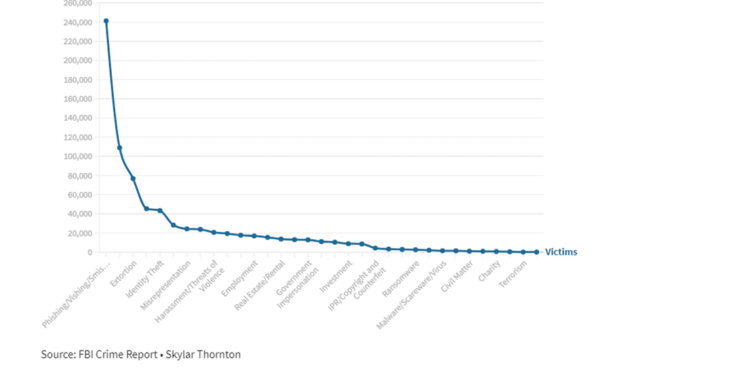By Skylar Thornton
The Department of Homeland Security, along with the National Cyber Security Alliance, designated the month of October as Cybersecurity Awareness Month. In line with the month’s awareness goals, Samford University Chief Information Security Officer John Bandy sent out emails throughout the month to the Samford community to inform students and faculty on how to use technology in a safe way.
“As our lives have become increasingly dependent on technology, virtually all personal and business data is kept on internet-connected platforms, which can become a gold mine for bad actors,” Bandy said in an email.
In one email, Bandy wrote that, in 2020, phishing was the most common type of cybercrime. According to the National Institute of Standards and Technology, the definition of phishing is, “a technique for attempting to acquire sensitive data, such as bank account numbers, through a fraudulent solicitation in email or on a web site, in which the perpetrator masquerades as a legitimate business or reputable person.”
According to Bandy, the FBI received 241,342 complaints in 2020 for phishing cybercrime. In a world full of smartphones, smart TVs and smart cars, criminals are becoming even smarter. However, knowing how to be cyber-safe can be one’s best defense against cyber-criminals.
Bandy advises students to verify their sources and links before clicking. He also recommends knowing what the most common red flags are. Some of these red flags are unusual and awkward formatting on websites. Other cautionary signals are hyperlinks, call-outs and subject lines that pressure unnecessary urgency. When any of these indicators appear, Bandy said students should take their time and carefully read through everything.
Vishing, also known as voice-phishing, is just as common a cybercrime as phishing, and it is becoming more popular. Cyber-criminals try to impersonate someone you may already know or act like an authority figure. If you suspect any red flags or unusual behavior, Bandy suggests ending the channel of communication and reaching out to that individual personally to verify. Vishing and phishing scams try to ask for personal information. If you are suspicious about any actions, end the connection.
These scams occur on many different platforms and channels including email, phone, social media and text. To stay cyber-safe, Bandy highly recommends turning off Wi-Fi and Bluetooth when not in use. In doing so, individuals will not be tracked as easily. Bandy said he believes that smartphones also need to have advanced security. Students should update their privacy and security settings in their phones and apps, close apps when they are not in use, and create longer and more complex passwords. Lastly, Bandy advises against using public computers to log into any accounts. Individuals who experience a scam or hack, regardless of dollar loss, are encouraged to contact the FBI at www.ic3.gov.






